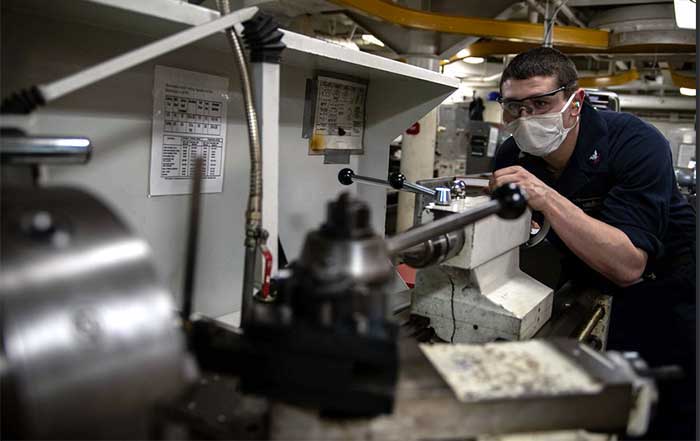Like elsewhere globally, the US manufacturing sector felt the adverse effects of Covid 19, with many operations getting halted. This resulted in the loss of jobs since the industry is usually labor-intensive. Moreover, it presented a new outlook on how the manufacturing sector needs approaching.
Regardless, adopting technological solutions, such as mobile robotics and artificial intelligence in the manufacturing sector has proved crucial. This is especially true in a pandemic period when the availability of labor was scarce. Interestingly, certain manufacturing firms ( like Tesla), who have integrated technology into their manufacturing processes, continued to thrive even with the labor scarcity.
Moreover, employee-training is crucial, even as more manufacturing firms shift towards smart technologies for their business processes. Certainly, employees' training will enable such businesses to work more efficiently with technology such as robotic machines and artificial intelligence programs. Further, hiring the best and top talent in a company's respective manufacturing sector is essential. The provision of incentives is equally significant for companies to attract talented employees.
Without a doubt, the manufacturing of products in the US has become crucial, as the country experienced shortages of various products and services due to lockdowns. Ironically, the globalized manufacturing by many businesses presented this shortage since many factories and production plants have, over the years, relocated to foreign countries. This offshore manufacturing has dramatically contributed to the lack of crucial products such as masks, testing kits, and protective clothing for the country's healthcare industry.
The US now needs to put in place infrastructure to ensure the manufacturing of goods and services is localized and not in foreign countries. Further, firms need to return to a result-based approach concerning manufacturing. With the ever-increasing power of shareholders in manufacturing firms, such businesses have to remain focused on their businesses' manufacturing aspects rather than elements like branding and marketing.
No wonder manufacturing firms are now cutting down costs to rebound from Covid 19 effects. This cutting down has resulted in job losses, but it has also helped streamline services. Cost-saving to channel the money to marketing and sales elements is crucial. Why? More businesses seek to recoup losses experienced due to the pandemic. Further, digital marketing is now an essential aspect of manufacturing businesses that previously relied mainly on face-to-face methods to reach their customers. Also, e-commerce has become a vital business model aspect since more firms are adopting drop shipping business practices to diversify their portfolios.
Also, investment in innovation programs and research and development is now an essential aspect of the manufacturing sector. Covid 19 has given firms an eye-opener on how important research and development is vital for businesses' growth. Patent protection and intellectual property protection are now crucial to the success of a firm's products and services.
We all know it- Covid 19 is still with us. Therefore, the manufacturing sector will need to ensure workers' health and safety standards are upheld, with modifications to ensure high sanitization levels in the workplaces. Hand sanitizing stations and shift rotations to enforce social distancing will be crucial to prevent virus outbreaks. Notably, employee safety will continue to be essential to prevent work injuries and incidents.
Diversification of products and services is vital for the sector, and Covid 19 has presented challenges to firms that deal in single product lines. Despite diversification being a capital-intensive endeavor, it is a cost-saving undertaking to ensure a business's cash flow. This diversification will enable manufacturers to have a contingency plan to fall back on, as no one when Covid 19 will be no more. Of course, change management will be necessary during this diversification, as managers will have to learn new practices and philosophies of executing the new order of business.
We shouldn't forget that government policies regarding the manufacturing industry will need to be changed to suit these uncertain times. The manufacturing sector suffered immensely due to the pandemic, and many firms suffered with it. What can be done? Low-interest loans for the industry would be a significant injection to revive many businesses. As the demand for products continues to rise, the industry will have to meet this demand, and this will require a lot of cash infusion into the industry. The government's incentives to the industry, characterized by tax holidays, research, and development tax credit, will contribute significantly to this sector's expected comeback.

